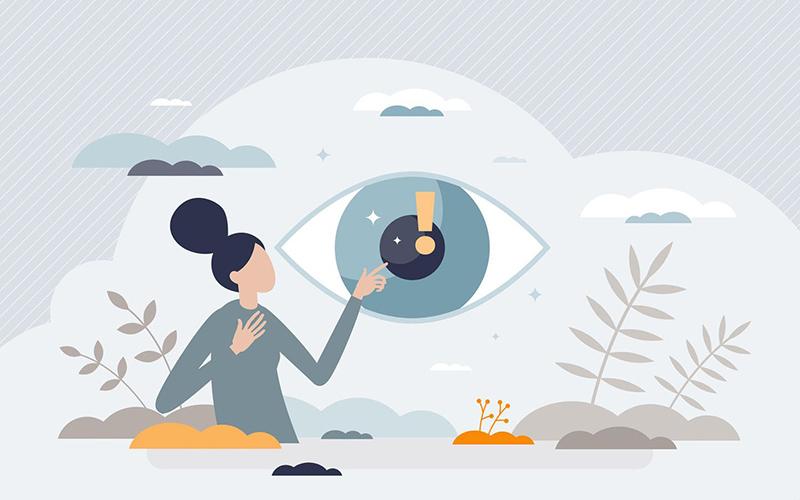The Power of Self-Awareness: Understanding Yourself Inside and Out
Self-awareness is a crucial component of emotional intelligence and personal development. It involves being conscious of your thoughts, emotions, and behaviors, as well as how these elements influence your interactions with others and your environment. At its core, self-awareness allows you to live with greater clarity, make informed decisions, and foster more meaningful relationships. But what exactly does self-awareness entail, and how can it benefit your everyday life?
What is Self-Awareness?
Self-awareness refers to the ability to monitor and reflect on your own thoughts, emotions, and behaviors. It involves recognizing both your internal experiences, such as feelings and beliefs, as well as how you come across to others in social contexts. Psychologists generally divide self-awareness into two categories: private self-awareness and public self-awareness.
Private self-awareness is your ability to reflect on your own inner thoughts and emotions. It allows you to understand your motivations, desires, and feelings at a deeper level. This internal focus is crucial for personal growth, as it encourages introspection and emotional regulation.
Public self-awareness, on the other hand, is about how aware you are of how others perceive you. It involves being conscious of your appearance, behaviors, and how you are received in social situations. This type of awareness can influence your social interactions and help you navigate different environments with more confidence.
Beyond these two categories, another important aspect of self-awareness is awareness of your surroundings—the ability to notice what is happening in your environment, including the people, objects, and activities around you.
The Benefits of Developing Self-Awareness
Self-awareness offers numerous benefits that extend across different areas of life:
- Improved Emotional Regulation: By understanding your emotions, you are better equipped to manage them. Instead of reacting impulsively, self-awareness allows you to respond thoughtfully, which can reduce stress and conflict in both personal and professional relationships.
- Enhanced Decision-Making: When you have a clear understanding of your values, goals, and motivations, you can make decisions that are more aligned with your long-term aspirations. Self-awareness helps you avoid choices that may lead to regret or dissatisfaction later on.
- Stronger Relationships: Being aware of your impact on others and how you are perceived can help you communicate more effectively and build stronger connections. People who are more self-aware tend to be more empathetic, understanding the needs and emotions of others with greater accuracy.
- Greater Success in Work and Personal Life: Self-awareness can boost your professional life by improving your ability to assess your strengths and weaknesses. By being realistic about your abilities, you can set achievable goals and pursue areas where you are likely to excel. At the same time, awareness of your limitations helps you seek the right kind of support and learning opportunities.
How to Cultivate Self-Awareness
Developing self-awareness is an ongoing process that requires intentional reflection and mindfulness. Here are some strategies you can adopt to become more self-aware:
- Mindfulness Practices: Mindfulness helps you stay present and aware of your thoughts, feelings, and surroundings without judgment. Practicing mindfulness through activities such as meditation, yoga, or simply spending time in nature can enhance your overall self-awareness.
- Journaling: Writing down your thoughts, emotions, and daily experiences in a journal encourages reflection. Over time, this can provide valuable insights into your patterns of thinking and behavior, helping you identify areas for growth.
- Seeking Feedback: Sometimes, we are not fully aware of how others perceive us. Asking trusted friends, colleagues, or mentors for feedback can offer a new perspective on your public self-awareness, highlighting both your strengths and areas for improvement.
- Reflection on Experiences: After significant life events, take time to reflect on your thoughts and actions. Consider why you made certain decisions and how they align with your values and goals. This habit helps build deeper self-awareness over time.
Why Self-Awareness Matters
Ultimately, self-awareness is a key element of personal fulfillment and success. It allows you to live in harmony with your internal world while also maintaining a balanced and productive relationship with the external world. The more self-aware you are, the better equipped you are to face life's challenges and achieve meaningful growth.
Self-awareness doesn’t just help you understand yourself; it also empowers you to bring positive change to your surroundings. As you grow more attuned to your inner experiences, you’ll find yourself making better decisions, enhancing your relationships, and becoming more adaptable in different environments.
If you're curious about your level of self-awareness, take the time to reflect on how attuned you are to your internal state and your external environment. Doing so can open the door to significant personal growth.



